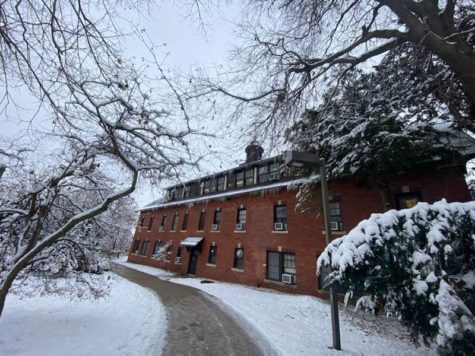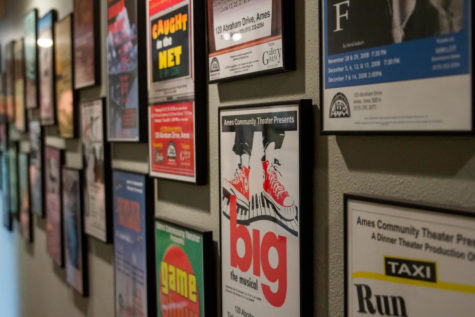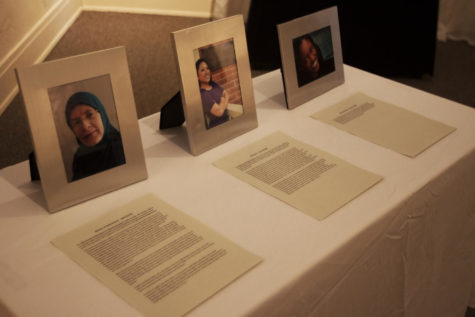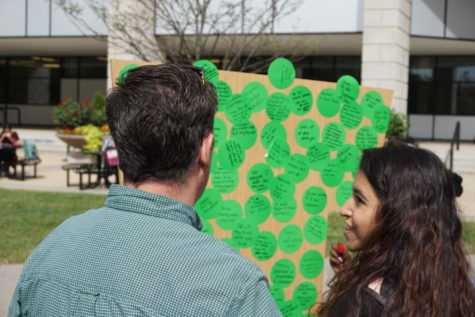Religious Studies classes build understanding and imagination skills
May 31, 2011
Dr. Christopher Chase, a religious studies
lecturer at Iowa State, knows that teaching religion requires
walking a very fine line.
“When you’re dealing with religion, you’re
dealing with people’s connections to power, and it’s a touchy
subject for a lot of people,” Chase said. “There’s just no way
around that, no matter what type of institution you’re at.”
Chase has taught at religious universities in
the past. For him, teaching religion at a secular university like
Iowa State means that some things aren’t appropriate to cover in
class.
“Students aren’t always used to making those
distinctions,” Chase said. “You kind of have to negotiate . . .
what is appropriate and what’s not appropriate to talk about.”
Chase tries to err on the safe side in his
classes, putting the religious topics he discusses in a historical
context. On the first day of every class he teaches, the class
dives right into discussion of how it is going to look at the
various topics covered in the course.
Chase said the context he gives isn’t
necessarily for the sake of objectivity, a quality he is skeptical
of.
“We are not objects,” Chase said. “We bring
our experiences with us. If you want to say everything’s
subjective, to some degree, that’s true . . . That doesn’t mean,
however, that we can’t engage things honestly and fairly. That’s
kind of what my goal is.”
As a teacher of religion, Chase takes
controversial material like beliefs, texts and practices and
presents them in a way students find accessible.
“Part of what we do is deliberately making the
kinds of material we put out there so broad, so that everyone will
be exposed to something unfamiliar [to] them,” Chase said.
“Everything’s unfamiliar to somebody. But at the same time, no
matter what background you bring to this, you’re going have to use
your imagination at some point to try and enter a worldview that’s
different from your own.”
Chase comes from a religiously diverse family.
His mother is Catholic. His father is a Methodist. His sister is a
Third Level Priestess in the Blue Star Wiccan tradition.
A taste for teaching also runs in his family.
His grandparents were teachers in Costa Rica, and his father is a
history teacher. But it’s pop culture, rather than family
tradition, that exerts the strongest influence on the
professor.
“My interest in popular culture and music,
especially the music of The Beatles, was pretty big for me,” Chase
said.
Chase was introduced to Indian music through
The Beatles. In a sense, they also introduced him to Indian
religions. The spiritual practices of guitarist George Harrison
sparked his interest in Hinduism
“Through [George], I got in touch with reading
some of the sacred Hindu scriptures in high school,” Chase
said.
Chase’s courses do not address the question of
which religions are “true” and which aren’t. He acknowledges that
those questions are important, but they aren’t what he focuses
on.
“My classes are designed to investigate why
insiders to a tradition feel compelled by their beliefs and
practices and texts,” Chase said. “It’s about the human side of
religion. It’s about trying to use one’s imagination to see what it
would be like to feel compelled by that.”
Chase believes that anyone would benefit from
religion classes.
“What [we teach] is important and applicable
for any student with any major,” Chase said. “I don’t care what
someone’s major is, I bet I can find a connection to religion
that’s important.”
Though some might view teaching about religion
in a secular institution like Iowa State as limiting and risky,
Chase finds it freeing and beneficial. He’s able to teach the way
he wants and to develop courses in a way that speaks to students’
interests.
Even non-students are welcome in his
classroom. He’s open to letting parents and state officials attend
his classes to see what’s going on.
“I’m a strong believer in public education,”
Chase said. “What I’m doing is part of the public interest and the
public good, and I believe classes should be open. As long as
[guests] don’t disrupt the class, I’m fine with it.”
















